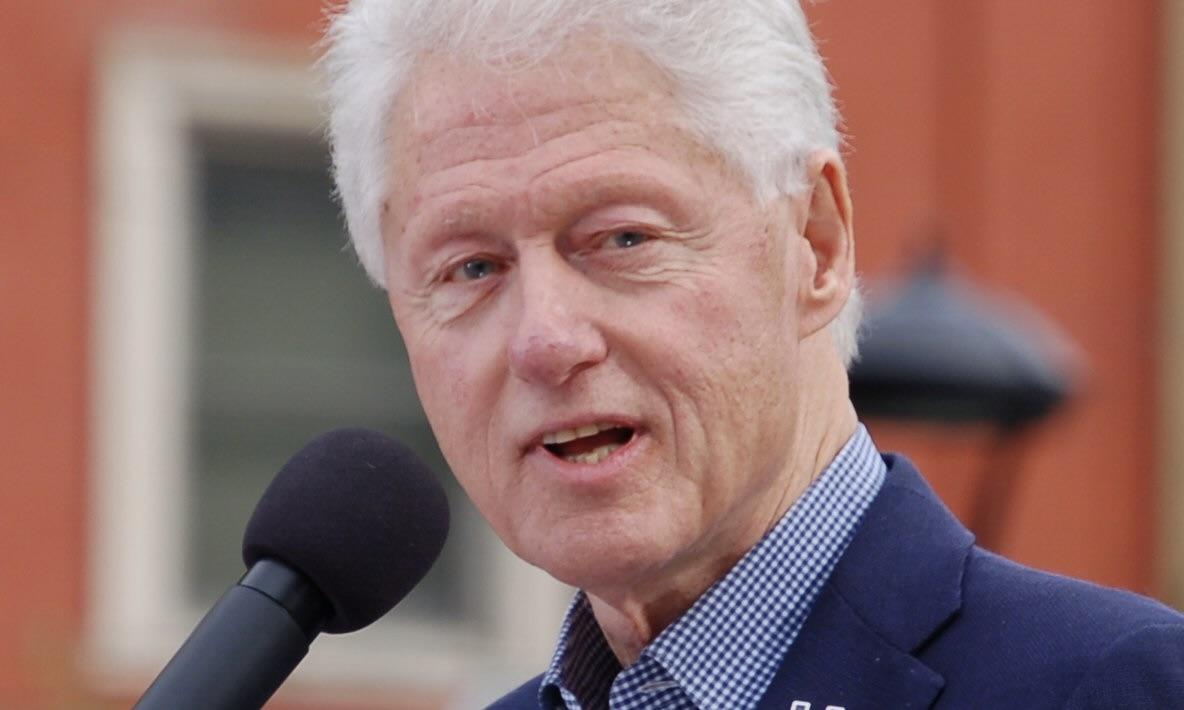In a pivotal moment highlighting the ideological divide in Washington, former President Bill Clinton and Treasury Secretary Janet Yellen came together on Thursday to celebrate the 30th anniversary of the Community Development Financial Institutions (CDFI) Fund. The program, credited with revitalizing underserved communities, now faces potential budget cuts as President-elect Donald Trump's efficiency task force evaluates its future.
A Historic Collaboration for Minority Communities
Launched in 1994 during Clinton's presidency, the CDFI Fund was designed to channel financial resources to small businesses and families in minority and underserved areas. Since its inception, the fund has injected $8 billion in grants, $3 billion in bond guarantees, and $81 billion in tax credits into these communities, fostering economic growth where traditional financing was inaccessible.
Yellen, who joined Clinton’s administration as Chair of the Council of Economic Advisers in 1997, emphasized the fund's enduring impact. “As we reflect on 30 years of progress, the CDFI Fund stands as a cornerstone of economic opportunity in underserved communities,” she stated. The fund is slated to provide an additional $100 million over the next three years to bolster affordable housing projects.
Trump's Efficiency Panel Targets Spending
However, the program’s future is far from certain. President-elect Trump has tasked Tesla and SpaceX CEO Elon Musk and entrepreneur Vivek Ramaswamy with leading a high-stakes effort to slash trillions in federal spending. Among the targets for potential cuts is the CDFI Fund, which Trump previously sought to eliminate in his fiscal 2018 budget plan. That proposal aimed to save $210 million, arguing that community lenders had gained adequate access to private capital.
While Trump’s administration ultimately preserved the fund and even funneled $12 billion into CDFI lenders during the COVID-19 pandemic, its survival under the new administration appears uncertain. A spokesperson for Trump’s transition team declined to comment on whether the program remains a target for fiscal downsizing.
A Track Record of Economic Impact
The CDFI Fund’s achievements speak volumes. Supporting more than 1,400 community lenders, the program has facilitated the expansion of financial services in areas historically excluded from mainstream banking. These investments have directly fueled small businesses, job creation, and affordable housing initiatives in minority communities.
Clinton, making his first visit to the Treasury Department in 25 years, expressed unwavering support for the program. He noted that its contributions to economic development cannot be overstated, particularly in today’s polarized political climate.
Yellen’s Vision for the Future
Yellen reaffirmed her commitment to the program, underscoring its vital role in fostering equitable economic growth. She urged policymakers to prioritize investments in initiatives that uplift underserved populations, stating, “We must build on the successes of the past 30 years to create a more inclusive financial landscape.”
A Battle for Economic Justice
As the Trump administration seeks to streamline federal spending, the CDFI Fund stands at the crossroads of a broader debate over economic equity and fiscal responsibility. Clinton and Yellen’s collaboration serves as a poignant reminder of the stakes involved in preserving programs that empower the nation’s most vulnerable communities.



 Why did Iran bomb Dubai? A Middle East expert explains the regional alliances at play
Why did Iran bomb Dubai? A Middle East expert explains the regional alliances at play  Moderna to Pay Up to $2.25B to Settle LNP Patent Dispute Over COVID-19 Vaccine Technology
Moderna to Pay Up to $2.25B to Settle LNP Patent Dispute Over COVID-19 Vaccine Technology  Oil Prices Surge After U.S.-Israel Strikes on Iran, Raising Strait of Hormuz Supply Fears
Oil Prices Surge After U.S.-Israel Strikes on Iran, Raising Strait of Hormuz Supply Fears  Santander’s $12.2B Webster Financial Deal Faces Uncertainty Amid U.S.–Spain Trade Tensions
Santander’s $12.2B Webster Financial Deal Faces Uncertainty Amid U.S.–Spain Trade Tensions  Rubio Says U.S. Would Not Target School After Deadly Iran Strike Reports
Rubio Says U.S. Would Not Target School After Deadly Iran Strike Reports  Rio Tinto Advances Gallium Extraction Project in Canada with Federal Funding Support
Rio Tinto Advances Gallium Extraction Project in Canada with Federal Funding Support  Israel-Hezbollah Escalation Deepens Lebanon’s Role in Middle East Conflict
Israel-Hezbollah Escalation Deepens Lebanon’s Role in Middle East Conflict  Wall Street Futures Tumble as U.S.-Iran Conflict Escalates and Oil Prices Surge
Wall Street Futures Tumble as U.S.-Iran Conflict Escalates and Oil Prices Surge  OpenAI Secures $110 Billion Funding Round at $840 Billion Valuation Ahead of IPO
OpenAI Secures $110 Billion Funding Round at $840 Billion Valuation Ahead of IPO  Pentagon Downplays ‘Endless War’ Fears After U.S. Strikes on Iran Escalate Conflict
Pentagon Downplays ‘Endless War’ Fears After U.S. Strikes on Iran Escalate Conflict  Argentina Tax Reform 2026: President Javier Milei Pushes Lower Taxes and Structural Changes
Argentina Tax Reform 2026: President Javier Milei Pushes Lower Taxes and Structural Changes  Shell to Invest $667M in Brazil’s Struggling Sugar and Ethanol Producer Raizen
Shell to Invest $667M in Brazil’s Struggling Sugar and Ethanol Producer Raizen  APEX Tech Acquisition Inc. Raises $111.97 Million in NYSE IPO Under Ticker TRADU
APEX Tech Acquisition Inc. Raises $111.97 Million in NYSE IPO Under Ticker TRADU  Middle East Air War Triggers Massive Flight Cancellations and Global Airline Disruptions
Middle East Air War Triggers Massive Flight Cancellations and Global Airline Disruptions  Gold Prices Surge Over 2% After U.S.-Israel Strikes on Iran Spark Safe-Haven Demand
Gold Prices Surge Over 2% After U.S.-Israel Strikes on Iran Spark Safe-Haven Demand  Asian Stocks Tumble as US-Iran Conflict Escalates and Oil Prices Surge
Asian Stocks Tumble as US-Iran Conflict Escalates and Oil Prices Surge  European Allies Deploy Air Defenses to Cyprus After Drone Attack on RAF Akrotiri Base
European Allies Deploy Air Defenses to Cyprus After Drone Attack on RAF Akrotiri Base 




























